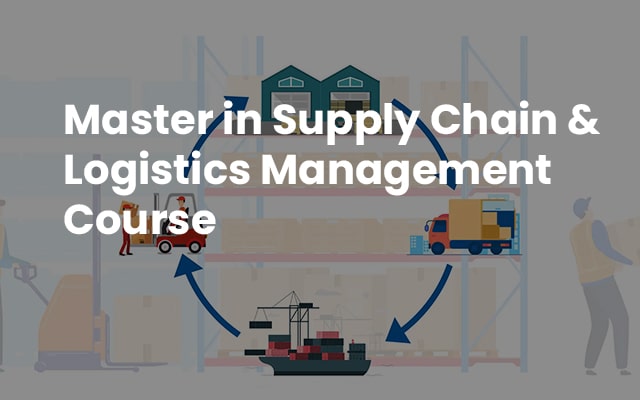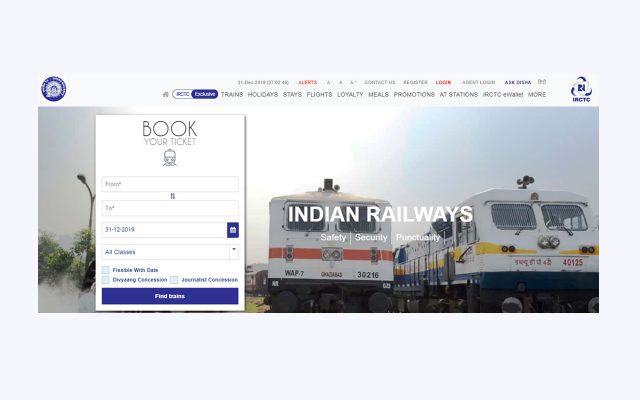Mastering the Art of Supply Chain & Logistics Management Course

The world of business is constantly evolving and growing. In order to stay ahead of the competition, businesses must continuously adapt to new trends and strategies. One key area that is becoming increasingly important for businesses is supply chain and logistics management.
Effective supply chain and logistics management can help businesses optimize their operations, reduce costs, and improve customer satisfaction. However, achieving these benefits requires a deep understanding of the principles and best practices of supply chain and logistics management.
That's where a comprehensive supply chain and logistics management course comes in. In this article, we'll explore the key components of a high-quality supply chain and logistics management course and how it can help businesses achieve success.
What is Supply Chain & Logistics Management?
Supply chain management refers to the coordination of activities involved in the production and delivery of goods and services. It includes everything from sourcing raw materials and components to manufacturing, transportation, and distribution. The goal of supply chain management is to create a seamless flow of goods and services from the point of origin to the point of consumption, while minimizing costs and maximizing efficiency.
Logistics management, on the other hand, focuses specifically on the movement and storage of goods. This includes transportation, warehousing, inventory management, and order fulfilment. Logistics management is a key component of supply chain management, as it helps to ensure that goods are delivered to customers on time and in the right condition.
Why is Supply Chain & Logistics Management Important?
Effective supply chain and logistics management can provide a number of benefits for businesses, including:
1. Cost Reduction - By optimizing supply chain and logistics operations, businesses can reduce costs associated with inventory, transportation, and warehousing.
2. Improved Efficiency - Effective supply chain and logistics management can help businesses streamline their operations and improve efficiency, resulting in faster delivery times and better customer service.
3. Increased Customer Satisfaction - By delivering products on time and in the right condition, businesses can improve customer satisfaction and loyalty.
4. Competitive Advantage - A well-managed supply chain and logistics operation can provide a competitive advantage, allowing businesses to differentiate themselves from competitors.
Components of a Comprehensive Supply Chain & Logistics Management Course
A comprehensive supply chain and logistics management course should cover a range of topics, including:
- Supply Chain Strategy - The course should cover the fundamentals of supply chain strategy, including sourcing, manufacturing, and distribution.
- Logistics Management - The course should cover the key principles of logistics management, including transportation, warehousing, inventory management, and order fulfilment.
- Technology & Innovation - The course should cover the latest technologies and innovations in supply chain and logistics management, including automation, artificial intelligence, and blockchain.
- Sustainability - The course should cover the importance of sustainability in supply chain and logistics management, including reducing carbon emissions and promoting social responsibility.
- Risk Management - The course should cover the key principles of risk management in supply chain and logistics management, including identifying and mitigating risks associated with supply chain disruptions.
Benefits of a Comprehensive Supply Chain & Logistics Management Course
Participating in a comprehensive supply chain and logistics management course can provide a number of benefits for businesses, including:
1. Improved Efficiency - By learning the latest best practices and technologies in supply chain and logistics management, businesses can improve their efficiency and streamline their operations.
2. Cost Savings - By optimizing their supply chain and logistics operations, businesses can reduce costs associated with inventory, transportation, and warehousing.
3. Increased Customer Satisfaction - By improving their supply chain and logistics operations, businesses can deliver products on time and in the right condition, improving customer satisfaction and loyalty.
4. Competitive Advantage - A well-managed supply chain and logistics operation can provide a competitive advantage, allowing businesses to differentiate themselves from competitors.
5. Improved Risk Management - By learning the key principles of risk management in supply chain and logistics management, businesses can identify and mitigate risks associated with supply chain disruptions, such as natural disasters, supplier bankruptcy, or geopolitical conflicts. This can help businesses avoid costly disruptions and maintain continuity in their operations.
6. Better Sustainability - By understanding the importance of sustainability in supply chain and logistics management, businesses can take steps to reduce their carbon footprint and promote social responsibility. This can not only benefit the environment and society, but also improve the reputation and brand image of the business.
7. Career Advancement - Participating in a comprehensive supply chain and logistics management course can provide individuals with the knowledge and skills needed to advance their careers in the field. This can lead to higher salaries, better job prospects, and increased job satisfaction.
Choosing the Right Supply Chain & Logistics Management Course
When choosing a supply chain and logistics management course, it's important to consider several factors, including:
- Relevance - The course should cover the latest trends and best practices in supply chain and logistics management, and be relevant to the specific needs of the business or individual.
- Quality - The course should be taught by experienced instructors with a proven track record of success in the field.
- Format - The course should be available in a format that is convenient and accessible, whether online or in-person.
- Cost - The cost of the course should be reasonable and provide a good value for the investment.
- Accreditation - The course should be accredited by a reputable organization, ensuring that it meets high standards of quality and rigor.
Conclusion
Effective supply chain and logistics management is essential for businesses looking to optimize their operations, reduce costs, and improve customer satisfaction. By participating in a comprehensive supply chain and logistics management course, businesses can gain the knowledge and skills needed to achieve these benefits and stay ahead of the competition.
When choosing a course, it's important to consider factors such as relevance, quality, format, cost, and accreditation. With the right course and a commitment to continuous learning and improvement, businesses can master the art of supply chain and logistics and unlock success.







